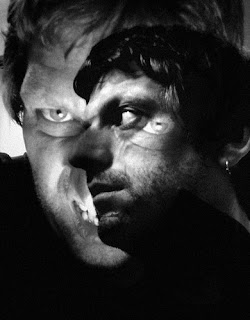New diagnosis to address "critical clinical need"
Although some scholars warn of dangers posed by the proposed expansions of psychiatric disorders, others say there remains a critical shortage of accurate diagnoses for those who need them. At a forensic psychiatry conference last month, for example, proponents said three new sexual disorders are needed to address an urgent clinical reality.
Incorporation of such broad-brush conditions as "psychosis risk syndrome," "temper dysregulation disorder," and "hebephilia" into the next edition of the Diagnostic and Statistical Manual of Mental Disorders (DSM-5), due out in 2013, will help address the diagnostic shortfall, the clinical realists say. But more should be done.
To help meet the needs of those few who remain undiagnosed, California psychologist Michael Donner has proposed an umbrella disorder. To qualify for the newly minted Bipolar by Proxy (BPP), patients must meet at least one of the following criteria during the preceding two-year period:
- A pervasive sense of well being
- Repetitive episodes of sadness or pleasure while engaging in pleasant or unpleasant activities, typically lasting for the duration of the activity
- A minimum of one episode of feeling extremely excited or irritated
- Two or more episodes of crying, or three or more episodes of an urge to cry
- Engaging in laughing behavior when confronted with something humorous
- A general willingness to comply with a prescription medication regimen despite having no overt symptoms
- One or more major medical health insurance reimbursement plans

As a rule-out, the disorder must not occur in the presence of any other previously undiagnosed mental illness. Nor can it be due to the direct physiological effects of exogenous substances (e.g., drugs of abuse or medications).
There may be no need to market a new drug for this condition. The prescription depressant Despondex (see below video) has been on the market for more than a year and targets annoying exuberance, a core symptom of Bipolar by Proxy that often alerts clinicians to conduct a more thorough diagnostic workup.
Although the reliability of the proposed diagnosis has not yet been established through clinical replication studies published in peer-reviewed journals, this should not be a barrier as field trials are being planned in time to make it into the manual just under the wire. The sites for the field trials will be strategically selected to maximize positive findings. Similarly, high inter-rater reliability will be assured through careful selection, training, and certification of raters by the Bipolar By Proxy Promulgation Association. The journal whose editorial board is dominated by that Association is expected to publish the positive findings. The larger question of validity is not thought to be a problem, as many other current and proposed diagnoses lack real-world validity.
Related post:
Despondex: Is psych mania overreaching? (June 22, 2009)
Photo credit: Eva Blue, Creative Commons License, Peaceful Heart Doctor, San Francisco Chinatown


















